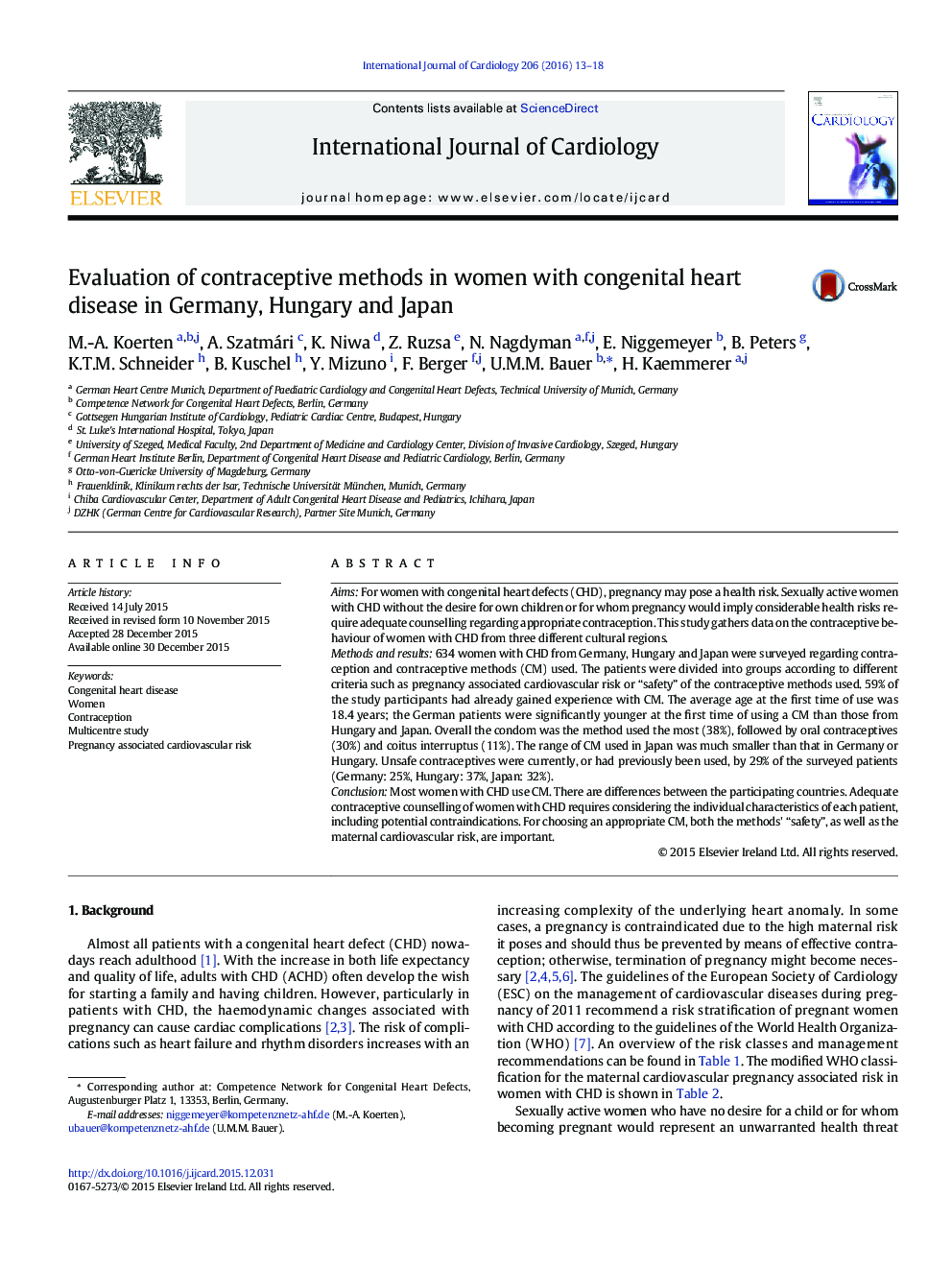| Article ID | Journal | Published Year | Pages | File Type |
|---|---|---|---|---|
| 2928745 | International Journal of Cardiology | 2016 | 6 Pages |
AimsFor women with congenital heart defects (CHD), pregnancy may pose a health risk. Sexually active women with CHD without the desire for own children or for whom pregnancy would imply considerable health risks require adequate counselling regarding appropriate contraception. This study gathers data on the contraceptive behaviour of women with CHD from three different cultural regions.Methods and results634 women with CHD from Germany, Hungary and Japan were surveyed regarding contraception and contraceptive methods (CM) used. The patients were divided into groups according to different criteria such as pregnancy associated cardiovascular risk or “safety” of the contraceptive methods used. 59% of the study participants had already gained experience with CM. The average age at the first time of use was 18.4 years; the German patients were significantly younger at the first time of using a CM than those from Hungary and Japan. Overall the condom was the method used the most (38%), followed by oral contraceptives (30%) and coitus interruptus (11%). The range of CM used in Japan was much smaller than that in Germany or Hungary. Unsafe contraceptives were currently, or had previously been used, by 29% of the surveyed patients (Germany: 25%, Hungary: 37%, Japan: 32%).ConclusionMost women with CHD use CM. There are differences between the participating countries. Adequate contraceptive counselling of women with CHD requires considering the individual characteristics of each patient, including potential contraindications. For choosing an appropriate CM, both the methods' “safety”, as well as the maternal cardiovascular risk, are important.
